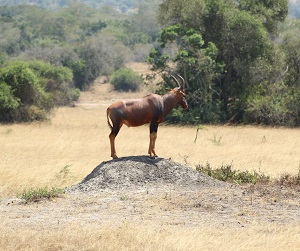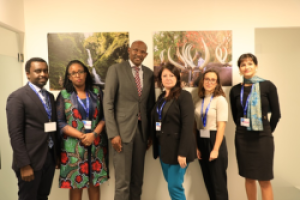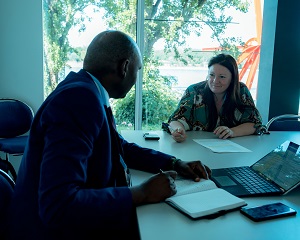 |
 |
|
|

Rwanda is a small mountainous country in central Africa, the average altitude of Rwanda is about 2,000 meters, with some peaks exceeding 4,000 meters.
Its recent history was marked by the genocide in 1994. In just over 100 days it is estimated that 1 million people lost their lives, mostly of the Tutsi ethnic group, who constituted the social elite of the country, massacred at the hands of regular army. This historic conflict between ethnic groups has long jeopardized the country's economic development.
The territory is rich in water, with its rivers and streams that are part of the Nile and Congo basin. There are numerous lakes such as Kivu, Nkombo and Lake Rweru. Despite the geographical position close to the Equator, Rwanda's climate is influenced more by altitude and is, therefore, temperate with copious annual rainfall especially in the more mountainous region to the north-west and less abundant in the eastern savannahs.
It is the exploitation of its large water resources that guarantees the country a broad coverage of its energy needs, with production from renewable sources for over 75%, and independence from supplies, although millions of inhabitants do not have access to the electricity grid yet.
The collaboration of MASE with the Rwandan Ministry of the Environment was born in 2016 with the first agreement signed in Marrakech, and then continued with the current agreement signed in Glasgow in 2021. In 2018, cooperation in Rwanda was also enriched by the agreement signed with the Global Green Growth Institute.
The Sustainable Urban Wetlands Development within Kigali City project is currently being implemented.
Headlines |
|
DUBAI, December 8, 2023 – The meeting of the Joint Committee, led by MoU, between the Italian Ministry of the Environment and Energy Security, (MASE), and the Ministry of the Environment of Rwanda, was held on December 8, on the sidelines of COP 28. The Committee met in Dubai for the second time in the MoU framework, renewed in 2021, which extended the cooperation relationship between the two administrations already started in 2016 for 5 further years. |
BONN, June 13 – On June 13, in Bonn, as part of MASE cooperation activities, a bilateral meeting was held with the delegation of the Rwanda Environment Management Authority, (REMA). The institution has a mandate on environmental and climate issues for the Rwandan Ministry of Environment, (MoE), and acts as the implementer of the Protocol signed by the MoE itself.
|
Memorandum of Understanding (Glasgow, November 2021 – 2026) |
Counterpart: Ministry of the Environment of the Republic of Rwanda.
Intervention areas:
- Support for the implementation, monitoring, reporting and communication of the Nationally Determined Contributions (NDCs);
- Collection, analysis and dissemination of data relating to the observation of climate change and the measurement of its impact on potentially vulnerable economic sectors;
- Improved risk assessment and disaster management;
- Promotion of biodiversity;
- Promotion of sustainable forest management;
- Promotion of sustainable and integrated land use;
- Sustainable and integrated water management;
- Waste management;
- Development of public education and awareness campaigns on global climate change and sustainable development;
- Strengthening public participation and exchange of good practices.
| Documentation - Italy-Rwanda Memorandum of Understanding (November 11, 2021, EN) |
GGGI Agreement (January 2018 – January 2019) |
“ Climate change Vulnerability, Adaptation and Mitigation”
Current projects |
MASE Financing |
|
Improved green culture and climate change resilience within Rwandan rural communities |
Euro 1.238.685,69 |
| GGGI CONTRIBUTION AGREEMENT 3 (Rwanda-Italy Sustainable Development Project_Phase 3) | Euro 455.999,97 |
Completed projects |
MASE Financing |
| Euro 1.016.000 | |
| GGGI CONTRIBUTION AGREEMENT 1 | Euro 100.000 |
| GGGI CONTRIBUTION AGREEMENT 2 | Euro 300.000 |
|
Updates 08/12/2023 Cooperation, at COP28 Dubai, meeting of the Joint Committee Italy-Rwanda |
MoU Archive |





